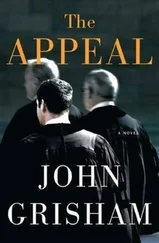I’ve spent many hours during the past three weeks studying these files, taking pages of notes, making hundreds of copies. With these files, I prepared a lengthy list of interrogatories, written questions one party sends to another to be answered in writing and under oath. There are countless ways to word interrogatories, and I found myself modeling mine after his. I picked my way through the files and made a long list of the documents I plan to request from Great Benefit. In some of the cases, Drummond’s opponent was quite good, in others, rather pitiful. But Drummond always seemed to have the upper hand.
I study his pleadings, briefs, motions, his written discovery and his responses to the same received from the plaintiffs. I read his depositions in bed at night. I memorize his pretrial orders. I even read his letters to the court.
After a month of subtle hints and gentle coaxing, I finally persuaded Deck to take a quick road trip to Atlanta. He spent two days there beating the bushes. He spent two nights in very cheap motels. The trip was firm business.
He returned today with the news I’d been expecting. Miss Birdie’s fortune is slightly in excess of forty-two thousand dollars. Her second husband did indeed inherit from an estranged brother in Florida, but his share of the estate was less than a million dollars. Before he married Miss Birdie, Anthony Murdine had two other wives, and they produced for him six children. The children, the lawyers and the IRS devoured almost all of the estate. Miss Birdie got forty thousand, and for some reason left it in the trust department of a large Georgia bank. After five years of fearless investing, the principal has grown by about two thousand dollars.
Only a portion of the court file has been sealed, and Deck was able to dig around and pester enough people to find what we wanted.
“Sorry,” he says after he summarizes his findings and hands me copies of some of the court orders.
I’m disappointed, but not surprised.
The deposition of Donny Ray Black was originally scheduled to be taken in our new offices, a scenario that caused me no small amount of anguish. Deck and I don’t work in squalor, but the offices are small and virtually bare. The windows have no curtains. The toilet in the cramped rest room flushes sporadically.
I’m not ashamed of the place, in fact, it’s almost quaint. A modest starter office for a rising young legal eagle. But it’s destined to be sneered at by the boys from Trent & Brent. They’re accustomed to the finest, and I hate the thought of enduring their snobbery as they slum here in the hinterlands. We don’t have enough chairs to crowd around the narrow conference table.
On Friday, the day before the deposition, Dot tells me that Donny Ray is bedridden and cannot leave the house. He’s been worrying about the depo, and it’s left him weak. If Donny Ray can’t leave home, then there’s only one place to take it. I call Drummond and he says he cannot agree to move the deposition from my office to the home of my client. Says the rules are the rules, and I’ll simply have to postpone it and renotify everyone. He’s very sorry about this. He, of course, would like to postpone it until after the funeral. I hang up, then I call Judge Kipler. Minutes later, Judge Kipler calls Drummond, and after a few quick remarks the deposition is moved to the home of Dot and Buddy Black. Oddly, Kipler plans to attend the deposition. This is extremely unusual, but he has his reasons. Donny Ray is gravely ill, and this might be our only chance to depose him. Time, therefore, is crucial. It’s not uncommon in depositions for huge fights to erupt between counsel. It’s often necessary to run to the phone and locate the judge, who’s expected to settle the matter during a conference call. If the judge cannot be found, and if the dispute cannot be worked around, then the deposition will be canceled and rescheduled. Kipler thinks Drummond et al. will attempt to disrupt the proceedings by picking a meaningless fight, then storm off in a huff.
But if Kipler is present, the deposition will proceed without a hitch. He’ll rule on objections, and keep Drummond on course. Plus, he says, it’s Saturday and he has nothing else to do.
Also, I think he’s worried about my performance in my first deposition. He has good reason to be concerned.
Friday night I lost sleep trying to figure out exactly how we could take a deposition in the Black home. It’s dark, damp and the lighting is terrible, which is critical because Donny Ray’s testimony will be videotaped. The jury must be able to see how tragic he looks. The house has little air conditioning, and the temperature runs in the mid-nineties. It’s hard to imagine five or six lawyers and a judge, along with a court reporter and a video camera operator and Donny Ray, all being able to sit together in semicomfort anywhere in the house.
I had nightmares of Dot choking us with vast clouds of blue smoke, and of Buddy in the backyard throwing empty gin bottles at the window. I slept less than three hours.
I arrive at the Black home an hour before the deposition.
It seems much smaller, and hotter. Donny Ray is sitting in bed, his spirits improved, claims to be up to the challenge. We’ve talked about this for hours, and a week ago I gave him a detailed list of my questions and what I expect from Drummond. He says he’s ready, and I detect a bit of nervous excitement. Dot is brewing coffee and washing walls. A group of lawyers and a judge are about to visit, and Donny Ray says she’s been cleaning all night. Buddy passes through the den as I move a sofa. He’s been cleaned and scrubbed. His shirt is white and the tail is tucked in. I cannot imagine the shrill bitching Dot laid on him to obtain this effect.
My clients are attempting to be presentable. I’m proud of them.
Deck arrives with a load of equipment. He’s borrowed an obsolete video camera from a friend. It’s at least three times larger than most current models. He assures me it will operate properly. He meets the Blacks for the first time. They watch him suspiciously, especially Buddy, who’s been relegated to dusting a coffee table. Deck surveys the den, living room and kitchen, and confides quietly to me that there’s simply not enough room. He hauls a tripod into the den, kicks over a magazine rack, draws a nasty look from Buddy.
The house is quite cluttered with small tables and footstools and other early sixties furniture covered with cheap knickknack souvenirs. It grows hotter by the minute.
Judge Kipler arrives, meets everyone, starts sweating, and after a minute or so says, “Let’s take a look outside.” He follows me through the kitchen door, onto the small brick patio. Along the back fence, in the corner opposite Buddy’s Fairlane, is an oak tree that was probably planted when the house was built. It provides nice shade. Deck and I follow Kipler through the freshly mowed but unraked grass. He notices the Fairlane with the cats on the windshield as we walk in front of it.
“What’s wrong with this?” he asks, under the tree. Across the back fence is a hedgerow so thick it prevents the view of the adjoining lot. In the middle of this unruly growth are four tall pine trees. They’re blocking the morning sun from the east, making this spot under the oak somewhat tolerable, at least for the moment. There’s plenty of light.
“Looks fine to me,” I say, though in my hugely limited experience I have never heard of an outdoor deposition. I say a quick prayer of thanks for the presence of Tyrone Kipler.
“Do we have an extension cord?” he asks.
“Yes. I brought one,” Deck says, already shuffling through the grass. “It’s a hundred-footer.”
The entire lot is less than eighty feet wide and maybe a hundred feet deep. The front yard is larger than the back, so the rear patio is not far away. Neither is the Fairlane. In fact, it’s sitting right there, not far away at all. Claws, the watchcat, is perched majestically on top, watching us warily.
Читать дальше












